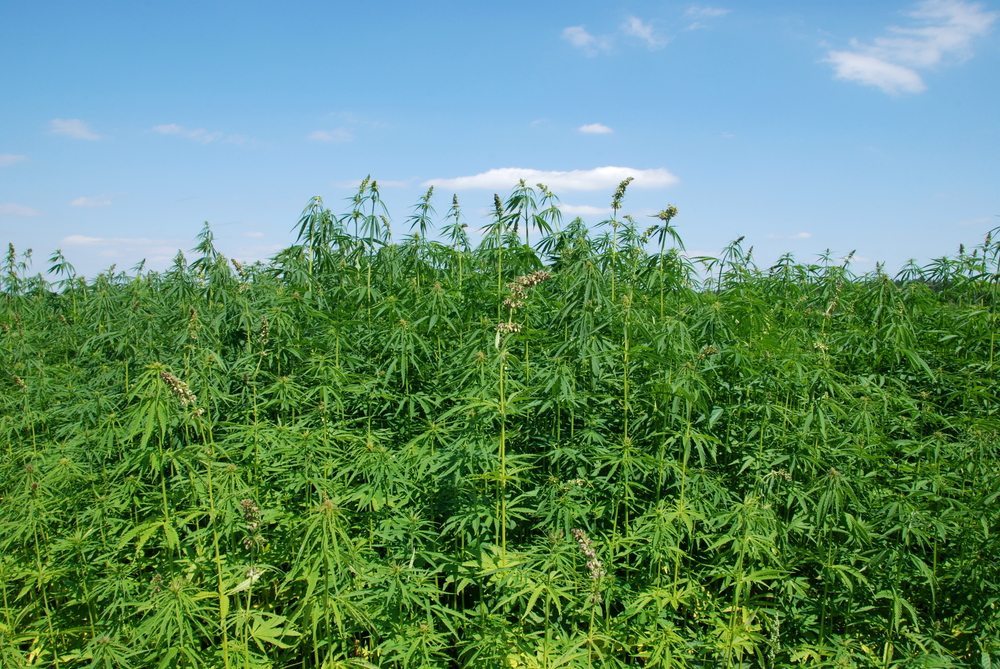
By Clint Thompson
The Southeast is primed to ramp up its hemp production. Alabama is ready for its second year of production, while Georgia and Florida are just getting started.
If the number of grower applications is any indication, interest in hemp is extremely high in all three states.
Hemp drew 166 grower applicants and eight applications for processor permits in Georgia, according to Mike Evans, director of plant industries at the Georgia Department of Agriculture, who oversees the hemp program.
“There’s just so much interest in hemp, not only in the state but nationwide. You have this interest, but if you followed the news last year, you saw in Tennessee and some of the other states where growers were having trouble, once the crop was harvested, to try to find a producer. There’s been some change in prices,” says Evans. “I was expecting to get a couple of hundred applications. We’re well on our way to getting to that number.”
He says any permits or licenses issued will expire at the end of the year and must be renewed.
The number of Florida farmers interested in producing hemp exceeded Georgia’s.
According to Jeff Greene, director of business development for the Florida Hemp Council, over 1,500 farmers submitted their names and email addresses to the Florida Department of Agriculture to express their interest in growing the crop. “I know that we’ve got in the Florida Hemp Council over 800 that have expressed interest,” says Greene.
And it’s not just a single sector that has expressed interest in the Sunshine State.
“I think we’re looking at it from all different levels. We’ve got tomato farmers in Homestead, Florida. The sugar industry is looking at it. The citrus industry is looking at it. The tree farmers up in the Panhandle are looking at it. Everybody’s looking at it,” Greene says.
CORONAVIRUS IMPACTS
In Alabama, Extension specialist Katelyn Kesheimer says there were 150 licensed growers with 10,000 acres approved last year, though only about half were farmed.
She estimates that there are approximately 500 official licensed growers in the state this year. However, because the economy has crashed amidst rising unemployment due to the ongoing coronavirus pandemic, the market may not be as enticing as it once was.
“My prediction is a lot of people who maybe were going to grow it, might just eat the license fee and not grow it,” says Kesheimer. “There’s so much uncertainty in the economy right now. Folks that aren’t making money and don’t have jobs aren’t going to spend money on CBD oil products. They’re going to spend it on actual necessities.”
Many potential hemp farmers filled out applications long before COVID-19 became a global problem. Greene believes the current crisis will impact hemp production in the Southeast.
“I think it’ll do more damage to the folks that may be in the business for six months to a year, people that may have invested a large amount of money and were looking to recoup their investment over the next six months. I think those that are just putting their money for the first time over the next six months will potentially hit the right timeline,” Greene says. “I think that’s one of the benefits potentially of COVID-19 is if this stimulus package is rolled down to the hemp industry, it could be a boon to kick an industry off. A tremendous amount of shovel-ready projects could be boosted by the stimulus package.”
RULES AND FEES
Each state has specific rules and regulations for producing hemp.
Evans says the Georgia Hemp Farming Act mandates that a Georgia producer can only sell to a Georgia processor. Out-of-state sales are not permitted.
“Growers are only allowed to sell to processors,” says Evans. “There’s no grower-to-grower sales.”
The license fee for growers is $50 per acre and is capped at $5,000. The cost is $25,000 for a processor’s permit.
Unlike in Georgia, the Florida Department of Agriculture does not require a licensing fee for farmers in Florida to produce hemp. However, a background check is required.
“As long as you have not been convicted of a drug-related crime in the last 10 years, you are approved to grow hemp in Florida,” Greene says.
In Alabama, it costs $1,000 to grow hemp and $2,000 to process it. Kesheimer emphasizes the fees are for each hemp site.
“If you have multiple farms that are separated by a substantial distance, you have to submit multiple applications and pay $1,000 per site,” Kesheimer says. “If you’re a processor and you have multiple processing handling sites, then you have to pay that fee multiple times.”
Background checks are required, as well as GPS coordinates for where the hemp will be produced.









